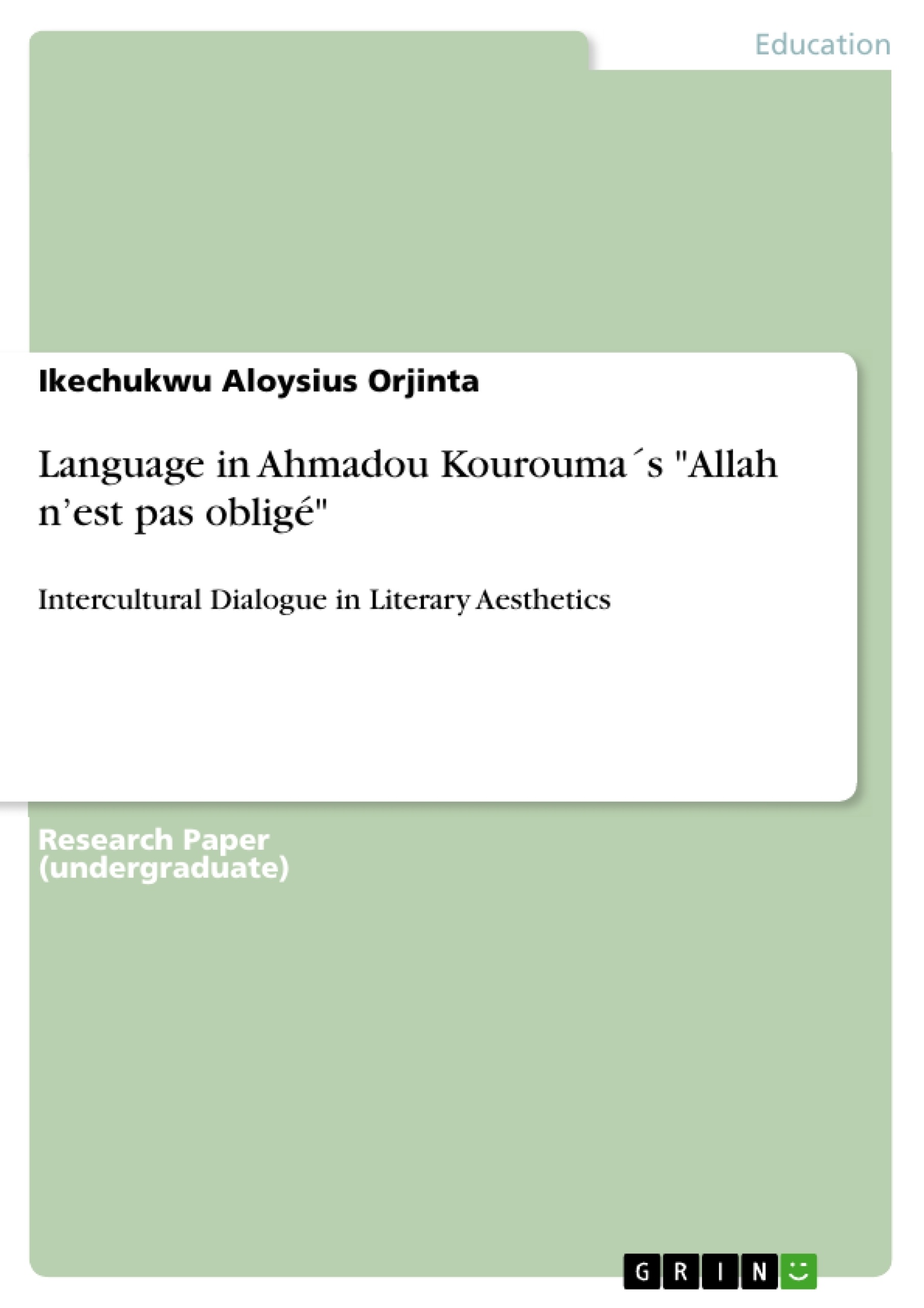This approach may at first sight appear like a linguistic revolt or rebellion since it distorts and massacres the French vocabulary and grammar. The goal of Ahmadou Kourouma and his colleagues is to prove that the French language cannot open up the African Weltanschauung (World view). The truth is simply that the structure of the French language fails to describe and express the African thought. This is exactly what the Canadians, the Swiss and the Belgians observed that made them invent Canadian French, Swiss French, and Belgian French. Elsewhere in European Studies I have advocated this intercultural dialogue in German Studies (Germanistik and Interkulturelle Germanistik) as a way out in the poor performance of the dissemination of German language, literature and culture. Even in English, we have the Queens English, the American English and the African pidgin English. Africans can as well have African French. Each writer faced with the realities of myriads of African misery: Colonialism, slavery, neo – colonialism, civil and religious wars, cannot afford the luxury of l’Art pour l’Art. Ahmadou Kourouma has to use the French language to mobilize his people for a way forward. He needed to bear a genuine testimony to the situation of his people, but he could not achieve this mobilization of his uneducated people adequately faced with the dilemma of using a foreign language.
Inhaltsverzeichnis (Table of Contents)
- Introduction
- Ahmadou Kourouma's Artistic Touch
- The Literary Value of Language
- The Encounter of the Two Languages
- The Struggle of the Third School of African Writers
Zielsetzung und Themenschwerpunkte (Objectives and Key Themes)
This preview aims to provide a comprehensive overview of Ahmadou Kourouma's novel "Allah N'est Pas Oblige," focusing on the author's unique style, the use of language, and the exploration of African identity. The preview will also delve into the challenges faced by Francophone African writers in expressing their cultural perspectives within the framework of French language.- The impact of language on literary expression and its role in shaping cultural identity
- The challenges of African writers navigating the use of French language to express African realities and perspectives
- The "Third School" of Francophone African writers and their approach to language and cultural representation
- Ahmadou Kourouma's unique style and its contribution to the portrayal of the African soul
- The relationship between the French and Malinké languages in shaping the artistic vision of the novel
Zusammenfassung der Kapitel (Chapter Summaries)
The introduction explores the fundamental role of language in literature, highlighting the importance of using it effectively to convey messages. It also discusses how different languages influence the expression of African realities and perspectives, setting the stage for the analysis of Kourouma's work.
The second section delves into Ahmadou Kourouma's unique artistic approach. It highlights his commitment to representing the African soul authentically, contrasting his style with other Francophone African writers. The text discusses how Kourouma's use of language reflects the challenges and opportunities of expressing African identity in a predominantly French-speaking context.
The third section further examines the complex relationship between the French and Malinké languages in the novel, exploring how Kourouma's style incorporates both languages. The preview emphasizes the aesthetic vision of the Third School of African writers, who believe in the enriching potential of integrating African languages into French.
Schlüsselwörter (Keywords)
This preview focuses on key terms and concepts that illuminate the unique linguistic and cultural landscape of Ahmadou Kourouma's "Allah N'est Pas Oblige." These include: Francophone African literature, language and identity, the Third School of African writers, Malinké language, cultural representation, French language, and the African soul.- Arbeit zitieren
- Ikechukwu Aloysius Orjinta (Autor:in), 2011, Language in Ahmadou Kourouma´s "Allah n’est pas obligé", München, GRIN Verlag, https://www.grin.com/document/170287



